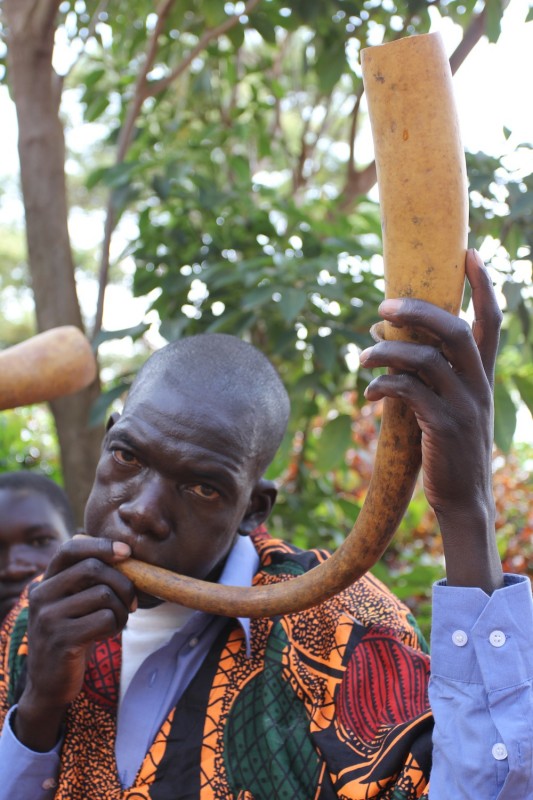
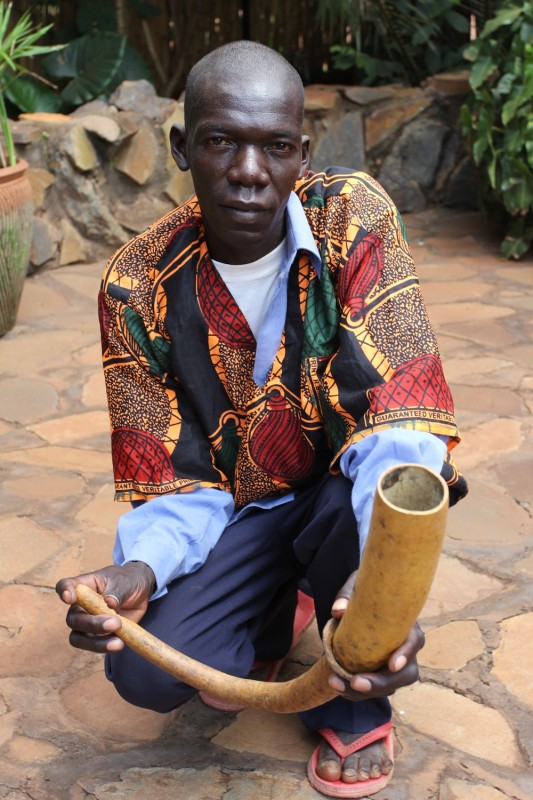

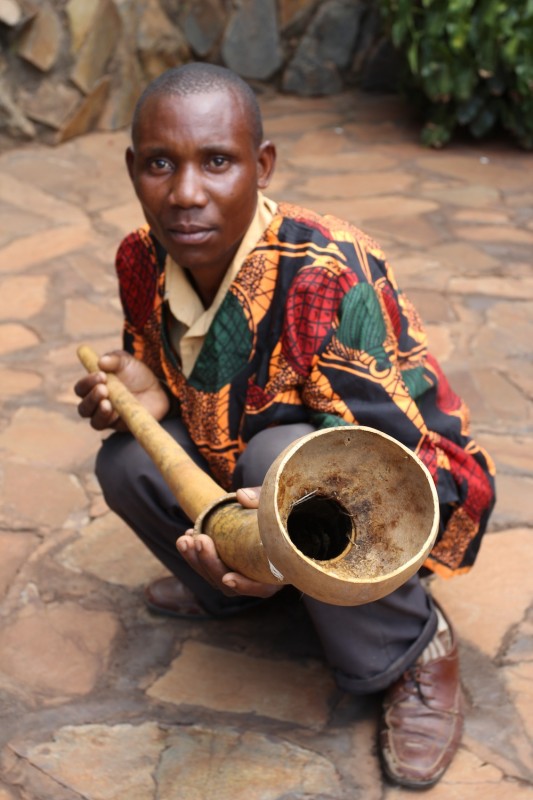
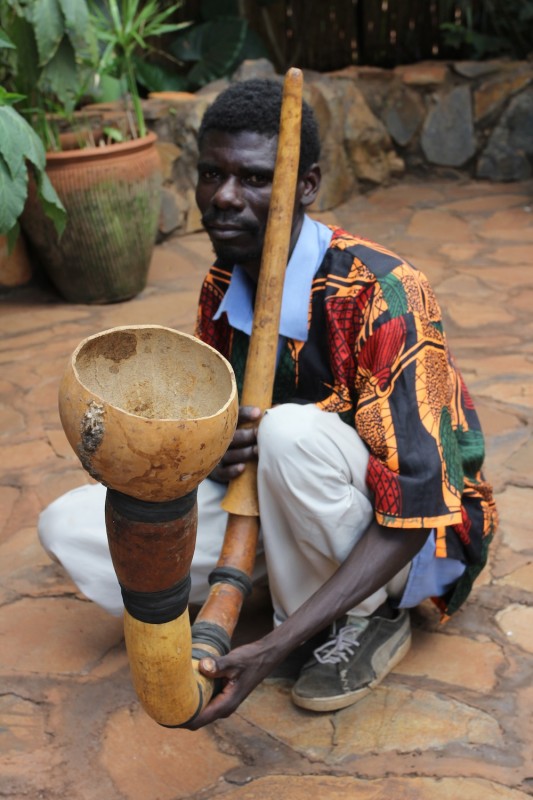
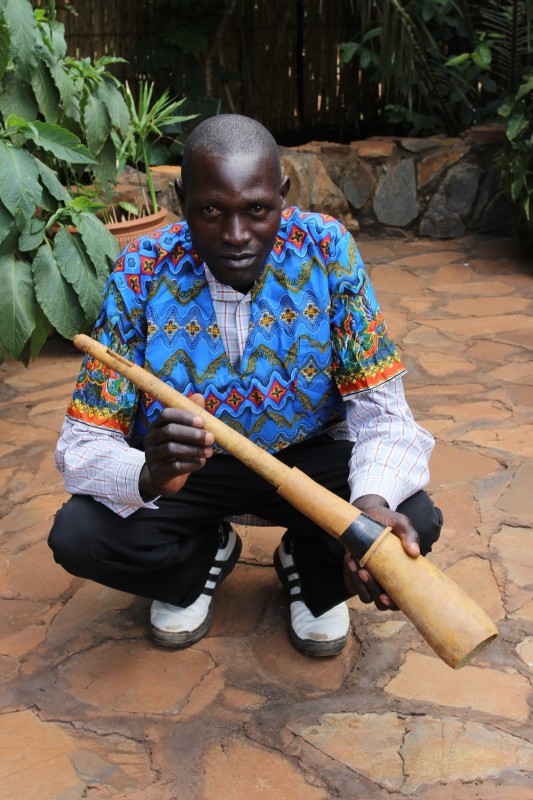
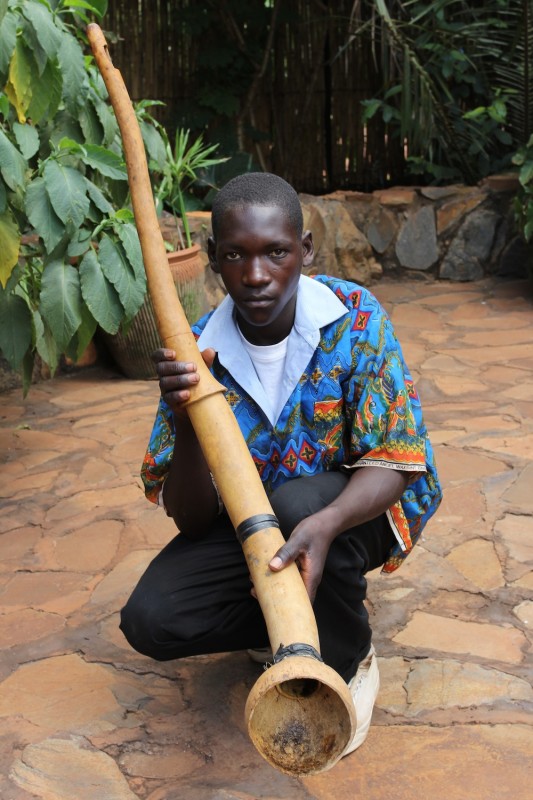
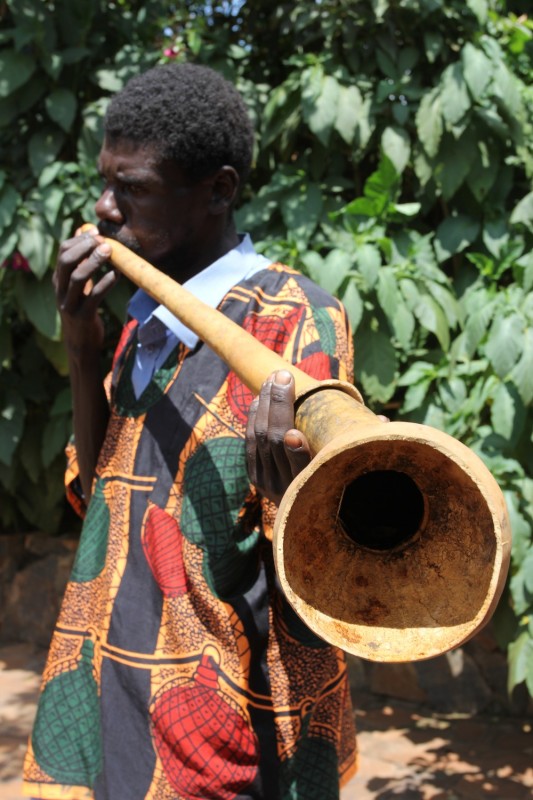
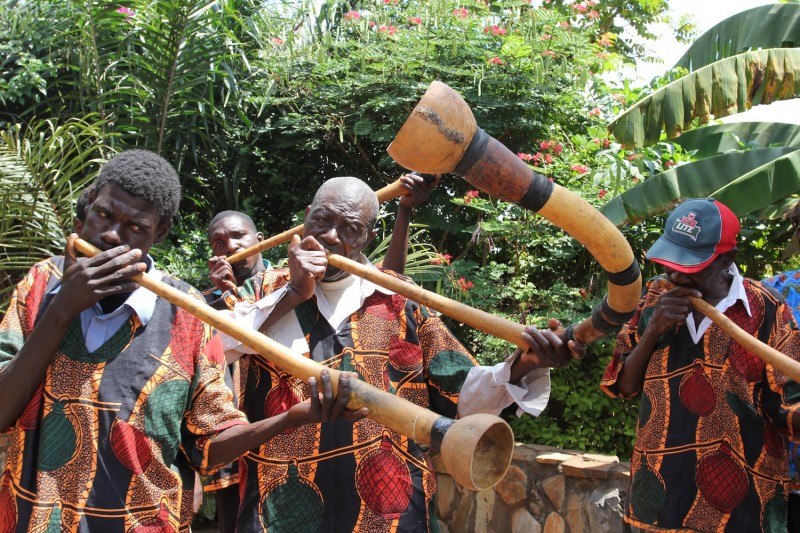
We encountered the Bigwala during our field visit to Central and Eastern Uganda in December 2013. While staying in Jinja we invited a local Bigwala group, the Bigwala Cultural Group, to perform for Singing Wells. Click here to read our report from the field.
Here is an extract from the UNESCO website, explaining about the Bigwala which was inscribed in 2012 on the List of Intangible Cultural Heritage in Need of Urgent Safeguarding:
Bigwala music and dance is a cultural practice of the Basoga people of Uganda, performed during royal celebrations such as coronations and funerals and, in recent decades, on social occasions. Bigwala describes a set of five or more monotone gourd trumpets blown in hocket to produce a melody, accompanied by a specific dance. A typical performance begins with one trumpet; other trumpets then join in followed by drummers, singers and dancers in that order. The singers and dancers move in a circular formation around the five drummers, swaying their waists gently and raising their hands with excitement in time with the music and rhythms. Women spectators ululate as the performance nears its climax. Bigwala plays a significant role in contributing to unity among the Basoga people. The lyrics of the songs narrate the history of the Basoga, focusing in particular on their king, thus symbolically reconfirming their identity and links with their past. Bigwala also addresses issues such as leadership, marriage problems and acceptable social norms and practices. At present, however, there are only four remaining older master bearers with skills in Bigwala making, playing and dancing, and their recent transmission attempts have been frustrated by financial obstacles. As a result, Bigwala is performed infrequently, which poses a real threat to its survival.